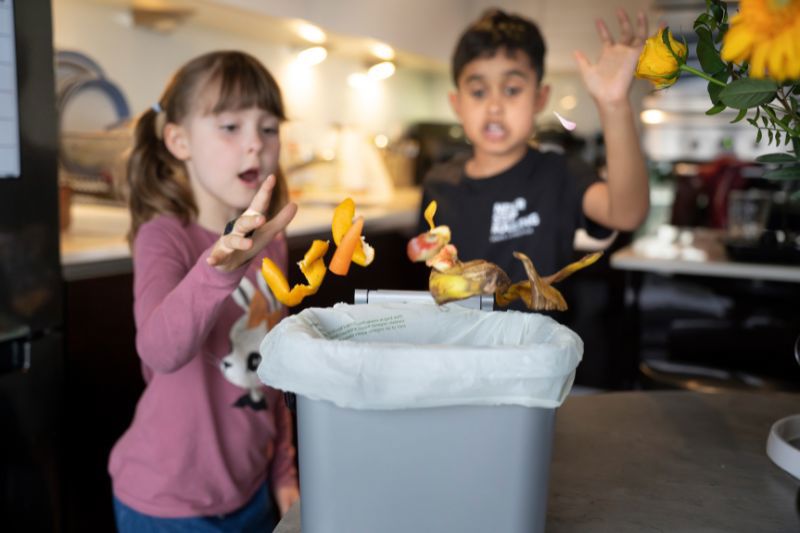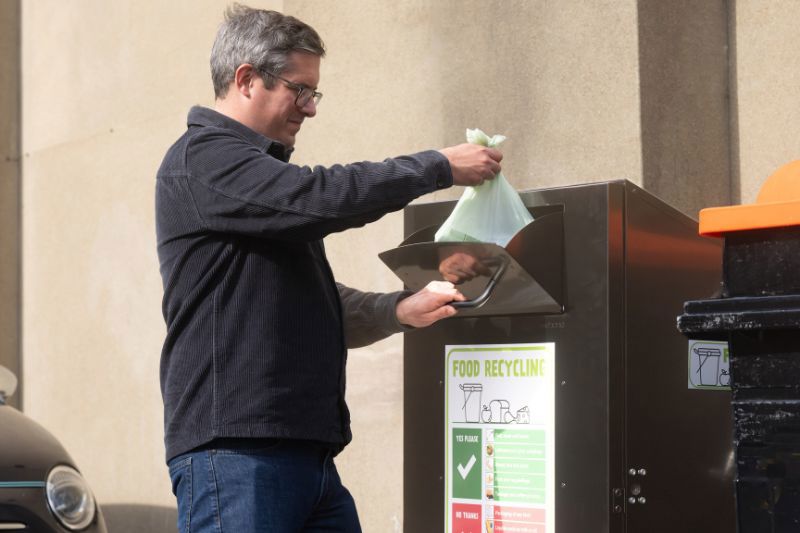Small scraps, big impact: How your food waste protects the planet
Published: Friday, April 25, 2025
As a listening council, last year we introduced free food waste recycling to all households with space at the front of their property for a food waste caddy.
Share this

With the help of residents and our Cleaner Borough Plan, we have already recycled 5,000 tonnes of extra recycling since June 2024, including general recycling, food waste, bulky waste, and real Christmas trees. The improvements have generated cost savings of £1.2 million, which will be reinvested into making streets cleaner.
Building on this success, we’re continuing the phased rollout of our free food waste recycling service to all homes in the borough. Around 3,000 households are being added every two weeks, and nearly every property in Wandsworth will benefit by the end of 2025.
Judi Gasser, Cabinet Member for Environment, said: “Lots of residents may not know that recycling your food waste could help you save as much as £720 every year! By making you more aware of how much food is going to waste, it naturally encourages you to cut down on avoidable waste and throw away less.
“Thank you to everyone who has already started to recycle their food waste. Every small action adds up to make a big difference.
“If you haven’t received your caddy yet, please stay tuned. We’ll write to you a couple of weeks before your service begins so you’ll have plenty of time to prepare.”
What happens to your food waste?
Do you know what happens to your food waste once you throw it away? Every peel, every crust, every bit of leftover food counts. When you pop your food waste into your kitchen caddy, and then out into your brown food waste bin or your building's communal bin – you’re helping to protect the planet.
Once collected, your food waste goes to a special facility where it’s checked, cleaned, and goes through anaerobic digestion – a natural process where micro-organisms break it down without oxygen. After a few days, this produces both a bio-gas – that's used to heat thousands of homes – and a liquid fertiliser which is used on UK farms to help crops grow.
Learn more about food waste recycling.
